Affiliate links on Android Authority may earn us a commission. Learn more.
Google Pixel 7a vs Pixel 5a: Should you upgrade to the latest Pixel?
Published onJune 16, 2023
Google’s mid-range smartphones have historically delivered excellent value, and the new Pixel 7a is no different. While it may look like a small update on the surface, we’re actually getting several big upgrades under the hood. That’s especially true if you skipped the last generation and are looking to upgrade your now-aging Pixel 5a. What are these improvements and how much impact do they have on the overall user experience? Let’s find out in this Pixel 7a vs Pixel 5a comparison.
Want to make a quick purchase decision? Here’s a quick rundown of the key differences between the Pixel 7a and Pixel 5a.
- The Pixel 7a sports a slightly smaller 6.1-inch display vs the Pixel 5a’s 6.34 inches.
- The older Pixel 5a weighs considerably lesser than the Pixel 7a, even though it sports a larger build.
- Unlike prior Pixel A-series phones, the Pixel 7a’s display features a smoother 90Hz refresh rate.
- The Pixel 7a’s Tensor G2 chip is significantly faster than the 5a’s Snapdragon 765G. The newer phone also packs an additional 2GB of RAM, taking the total up to 8GB.
- The new design of the Pixel 7a leaves no place for a rear-mounted fingerprint scanner. The sensor is now placed under the display instead.
- With its new 64MP primary sensor and upgraded ultrawide lens, the Pixel 7a's cameras are far superior to the ones on the Pixel 5a.
- Google has added wireless charging to the Pixel 7a, a first for Google's A-series Pixel smartphones.
- The Pixel 7a lacks a 3.5mm headphone jack, which was included on the Pixel 5a.
Keep reading to know more about how the Pixel 7a differs from the Pixel 5a, including in more areas like connectivity and ergonomics.
Google Pixel 7a vs Pixel 5a: Specs
| Google Pixel 7a | Google Pixel 5a | |
|---|---|---|
Display | Google Pixel 7a 6.1-inch OLED FHD+ resolution (2,400 x 1,080) 20:9 aspect ratio 90Hz refresh rate HDR support Gorilla Glass 3 | Google Pixel 5a 6.34-inch OLED display FHD+ resolution (2,400 x 1,080) 20:9 aspect ratio 60Hz refresh rate Corning Gorilla Glass 3 |
Processor | Google Pixel 7a Google Tensor G2 | Google Pixel 5a Qualcomm Snapdragon 765G |
GPU | Google Pixel 7a Arm Mali-G710 | Google Pixel 5a Adreno 620 |
RAM | Google Pixel 7a 8GB LPDDR5 | Google Pixel 5a 6GB LPDDR4x |
Storage | Google Pixel 7a 128GB UFS 3.1 | Google Pixel 5a 128GB |
Battery and charging | Google Pixel 7a 4,385mAh battery 18W wired charging 5W wireless charging No charger in the box | Google Pixel 5a 3,800mAh 18W fast charging No wireless charging Charger in the box |
Cameras | Google Pixel 7a Rear: 64MP wide primary sensor 80-degree FoV 1/1.73" image sensor size Super Res Zoom up to 8x Secondary: 13MP ultrawide ƒ/2.2 120-degree FoV Front: 13MP f/2.0 | Google Pixel 5a Main: 12.2MP dual-pixel Optical + electronic image stabilization ƒ/1.7 aperture 77° field of view Secondary: 16MP ultrawide ƒ/2.2 aperture 117° field of view (107° after distortion correction) Front: 8MP ƒ/2.0 aperture |
Audio | Google Pixel 7a Stereo speakers No 3.5mm port | Google Pixel 5a Stereo speakers 3.5mm headphone jack |
Security | Google Pixel 7a In-display fingerprint Titan M2 chip 5 years' security updates | Google Pixel 5a Titan M Security Module Fingerprint (rear-mounted) |
Connectivity | Google Pixel 7a Wi-Fi 6 (802.11ax) Wi-Fi 6E (6GHz) in selected markets Bluetooth 5.3 NFC support GPS | Google Pixel 5a Wi-Fi 5 (2.4GHz + 5GHz) Bluetooth v5.0 + LE, A2DP7 NFC GPS |
Software | Google Pixel 7a Android 13 with Pixel UI | Google Pixel 5a Android 11 with Pixel UI. Upgradeable to Android 13 |
Materials | Google Pixel 7a Gorilla Glass 3 on the front Aluminum frame Polycarbonate back | Google Pixel 5a Gorilla Glass 3 on front Plastic frame/rear |
Dimensions and weight | Google Pixel 7a 152.4 mm x 72.9 mm x 9.0 mm 178g | Google Pixel 5a 156.2 x 73.2 x 8.8mm 183g |
Colors | Google Pixel 7a Arctic Blue, Chalk, Charcoal | Google Pixel 5a Mostly Black |
Google’s budget phones have taken various different approaches to reach their low price points over the years. The Pixel 5a struck a good balance when it launched in 2021, but it was largely based on its predecessor. The Pixel 7a, meanwhile, does come in at a higher price but has plenty to show for that as we’ll explain later. For now, let’s start with the design, which is a radical departure compared to the Pixel 5a.
The Pixel 7a features a two-tone design on the rear, with a color-matched aluminum frame surrounding the whole phone. The frame also blends seamlessly into the camera visor just like it does on the higher-end Pixel 7. At a glance, the Pixel 7a looks every bit as premium as Google’s flagship phones. It’s only once you inspect it closely that you’ll notice the plastic back and display bezels, which are larger even when compared to the Pixel 5a.
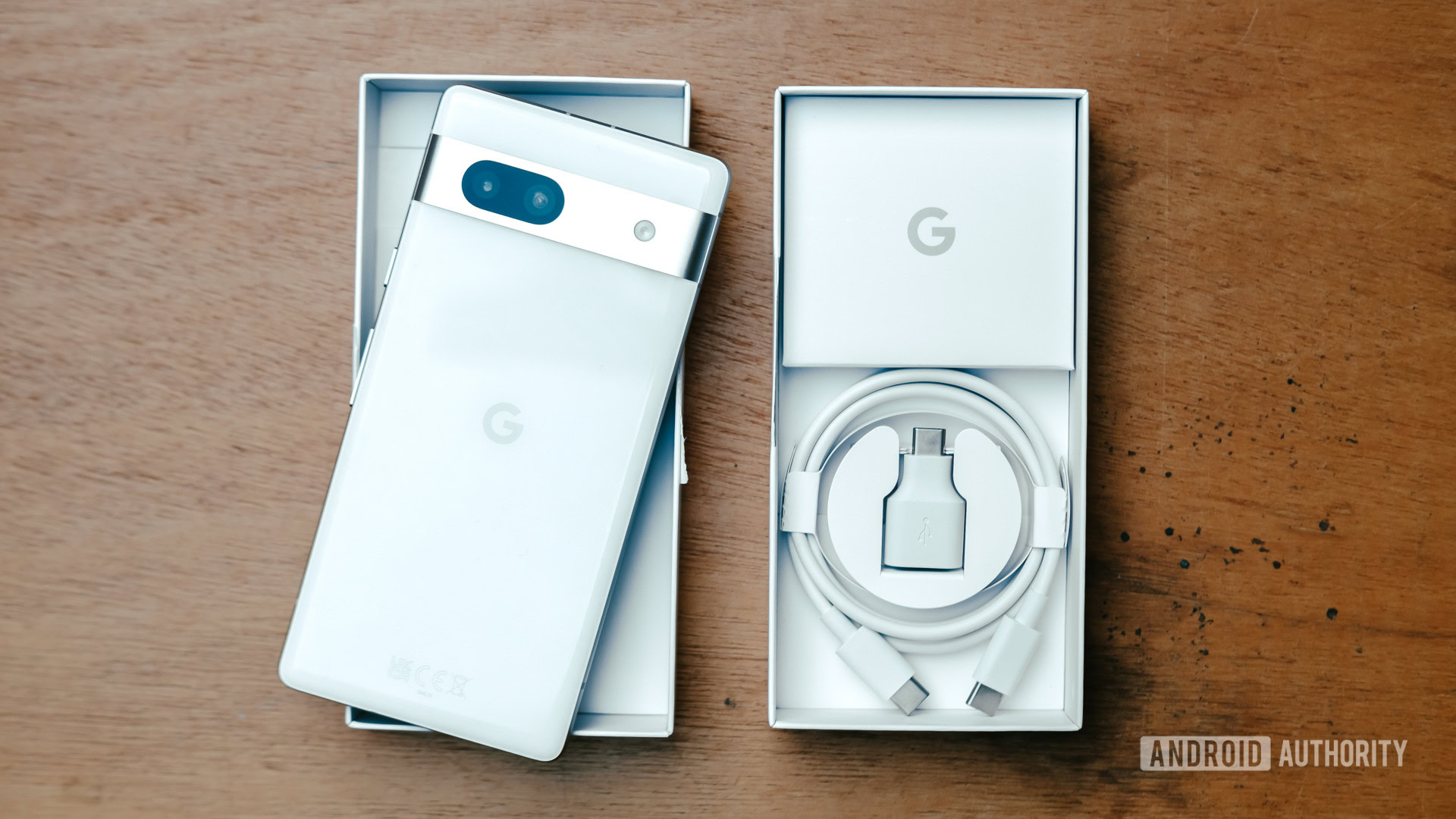
Aesthetics aside, though, we’re happy to report that the Pixel 7a’s display itself got a major upgrade this year. At 6.1 inches, it’s slightly smaller than the Pixel 5a’s 6.34-inch display. However, the newer Pixel is the first in the Pixel A series to get a 90Hz panel. This faster refresh rate translates to a perception of smoothness when scrolling and even swiping around the general interface. Once you get used to 90Hz, you may find standard 60Hz displays, like the one on the Pixel 5a, almost sluggish by comparison.
The Pixel 7a's 90Hz display feels much smoother than older phones in the series.
Another area in which the Pixel 7a has a definitive lead over the 5a is in terms of performance. Google’s 2023 budget phone ships with the company’s own Tensor G2 chip, which is a lot better than the mid-range Snapdragon 765G in the Pixel 5a. In fact, the more expensive Pixel 7 and 7 Pro use the same chip as well. All in all, you’ll be hard-pressed to find a better chip in a $500 smartphone.
Besides delivering flagship-grade performance, the Tensor G2 in the Pixel 7a unlocks a whole host of machine learning and camera features. More on that in a later section. If you’re a power user, you’ll be happy to know that the Pixel 7a’s extra 2GB of RAM vs the Pixel 5a should help with multitasking as well.
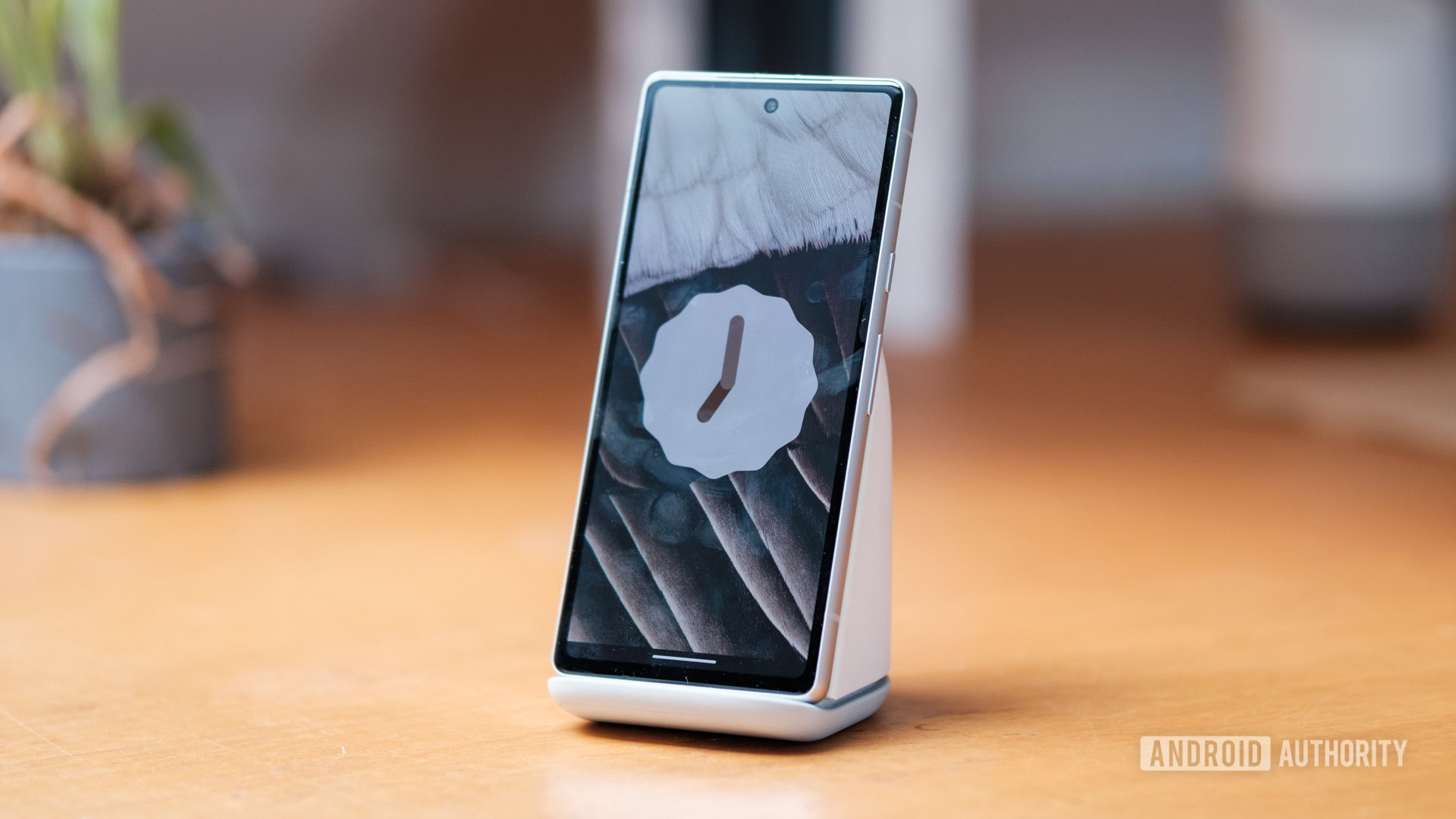
Connectivity is an often-overlooked section of the spec sheet, but the Pixel 7a’s improvements are worth highlighting. Compared to the Pixel 5a, it adds support for Bluetooth 5.3 LE and Wi-Fi 6E. You can also buy carrier variants with faster mmWave 5G too, but that’s comparatively less important. Besides ultra-wideband (UWB), the Pixel 7a ticks every single smartphone connectivity spec out there. Unfortunately, however, the series dropped the headphone jack between the release of the Pixel 5a and Pixel 7a.
The Pixel 5a will not get software updates beyond 2024. The Pixel 7a has five years of support ahead of it.
Finally, let’s talk about software. The Pixel 5a will turn two years old later this year. That puts it on track to get just one more year’s worth of updates, including security patches. This is because the Pixel 5a was the last Google phone in history to receive just three years of updates.
Modern Pixel devices now enjoy five years of support, with three major software updates and an additional two years of security patches. So if you pick up a Pixel 7a, you won’t have to worry about your phone’s security until 2028. That’s a long support commitment and makes the Pixel 7a look extremely future-proof when compared to the Pixel 5a.
Google Pixel 7a vs Pixel 5a: Size comparison
Even though smartphones have become larger over the years, the Pixel 7a is notably smaller than the Pixel 5a. A 0.2-inch difference in display size may not sound like much, but it can make quite a difference in terms of ergonomics. In fact, our review found that the phone’s narrow design makes it rather comfortable to use one-handed.
Having said that, the Pixel 7a did also gain some weight compared to the Pixel 5a. At 193g, it’s 10g heavier than the Pixel 5a and almost matches the Pixel 7. The latter sports a larger display and glass back, so we’re not sure how Google spent all of its weight budget on the cheaper phone. Regardless, if you’re fond of compact phones, you will like the Pixel 7a just as much as the Pixel 5a as it’s still comfortable in the hand.
Google Pixel 7a vs Pixel 5a: Cameras
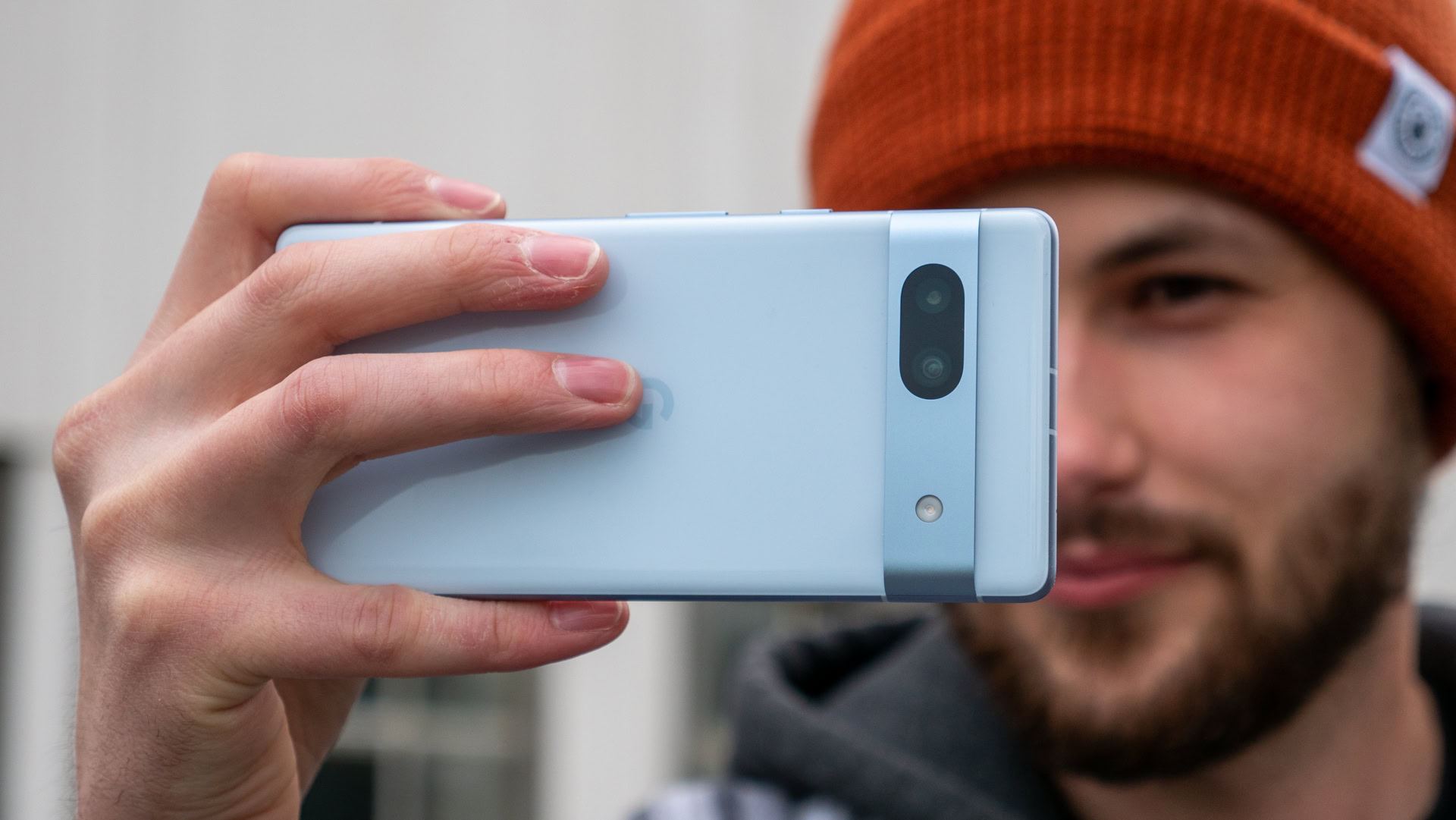
When the Pixel 5a launched, many reviewers claimed that you couldn’t find a better set of cameras on a sub-$500 smartphone. That part remains largely true to this day and the Pixel 7a only improves things further.
Google tends to stick with the same camera hardware for multiple generations, but this year is different. The Pixel 7a packs a 64MP primary shooter, which is a step up from the Pixel 5a’s 12.2MP camera. The image sensor is considerably larger too, allowing for better performance in low-light shooting conditions. Finally, we get an expanded ultrawide camera on the Pixel 7a, with a 120-degree field of view instead of 107 degrees.
With its faster hardware, the Pixel 7a delivers excellent results with less processing delay vs the Pixel 5a. That’s especially true when the sun goes down. Night Sight only ever takes three seconds or so to gather enough detail on the newer phone. In our Pixel 7a review, we praised the excellent camera performance across both lenses and believe that it’s one of the phone’s biggest selling points. Check out some of the samples we captured with both phones below.
You also get a host of new software features that make the Pixel 7a’s camera significantly better from a less obvious perspective. Features like Real Tone and faster Night Sight make the imaging experience far more consistent from shot to shot. The older phone missed out on most of these Pixel-exclusive features as Google’s semi-custom Tensor G2 chip does a lot of heavy lifting. The same applies to the selfie camera, which also got a resolution bump from 8MP to 13MP.
Google Pixel 7a vs Pixel 5a: Battery and charging
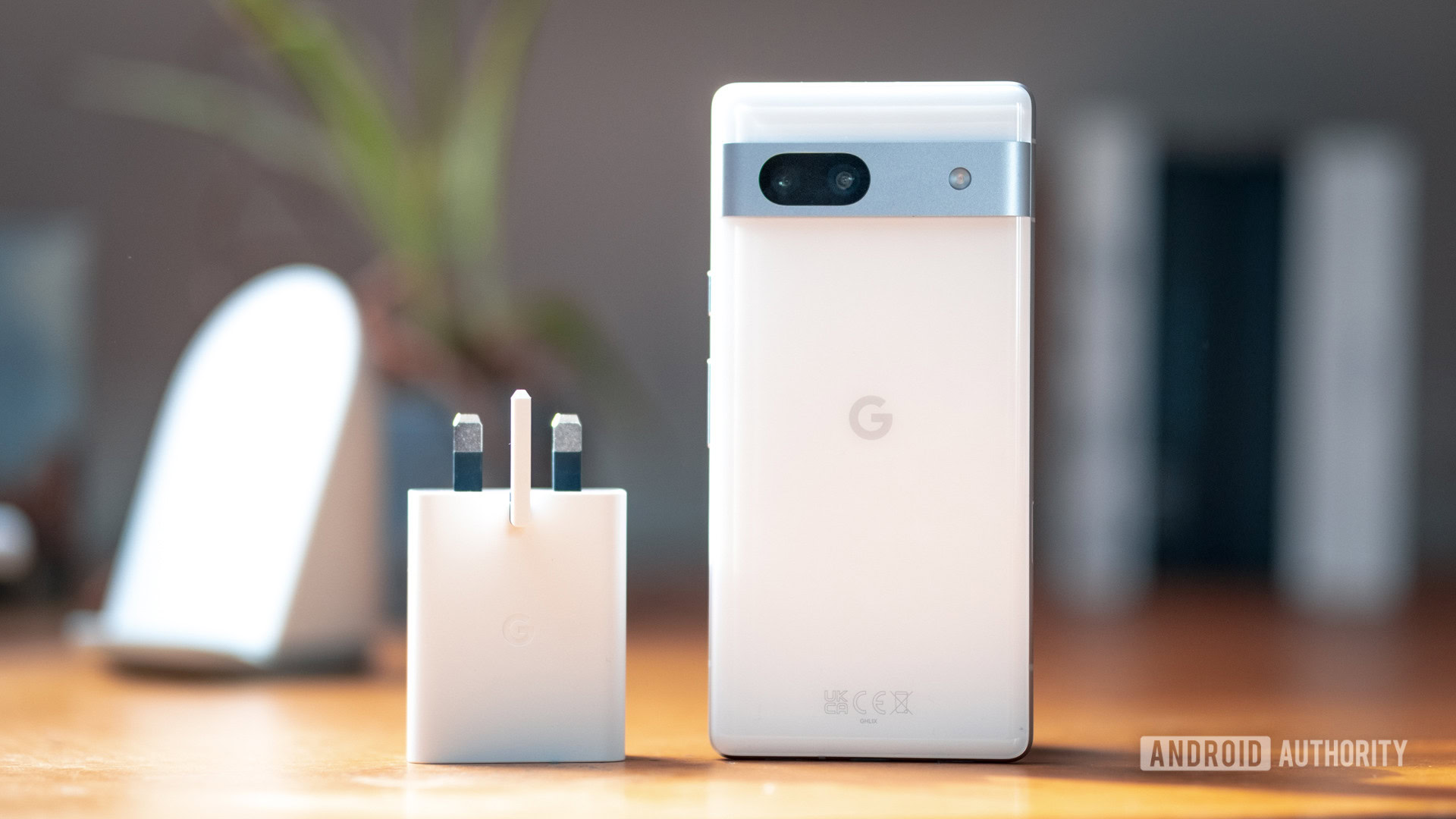
Battery life hasn’t ever been a strong point of the Pixel series. However, the Pixel 5a’s efficient Snapdragon 765G chip paired with a decently-sized battery translated to some of the best endurance we ever saw on a Google phone. During our review period, we found that the phone could make it through a full day with over half of its charge still intact. That’s phenomenal runtime from any smartphone, Pixel or otherwise.
Unfortunately, Google’s winning streak in the battery life area was rather short-lived. The Pixel 7a has returned to the series’ average, providing just enough battery life to satisfy casual users. You can thank the flagship-grade Tensor G2 chip here as it’s far more power-hungry than the Pixel 5a’s Snapdragon 765G. Likewise, the new 90Hz display is a welcome usability improvement, but it comes at a power and battery cost.
The Pixel 7a doesn't last anywhere as long as the Pixel 5a between charges.
To be clear, the Pixel 7a offers decent enough battery life for most use cases. But if you were hoping for chart-topping endurance, you’ll have to look elsewhere.
Moreover, Google hasn’t improved charging speeds in the two years since the Pixel 5a’s launch. The Pixel 7a still charges at just 18W, placing it behind the already-slow Pixel 7. In our testing of the Pixel 7a’s charging, we found that it takes nearly two full hours to go from 0 to 100%. In other words, don’t expect an improvement if you’re coming from an older Pixel A-series phone.
That said, the Pixel 7a does add wireless charging, which is a first for the series. However, the phone only accepts 7.5W of power, which stretches the charging time beyond three hours. So while the feature is a welcome addition, it’s rather impractical outside of quick top-ups. You don’t get reverse wireless charging either as that’s a feature you’ll only get on the more premium Pixel 7 phones.
If you decide to upgrade to the Pixel 7a, you might want to hold on to your old phone’s power adapter. Google’s latest smartphones don’t ship with a charger in the box. Alternatively, we’ve put together a list of the best Pixel 7a chargers if you need a replacement or care about future-proofing.
Google Pixel 7a vs Pixel 5a: Price
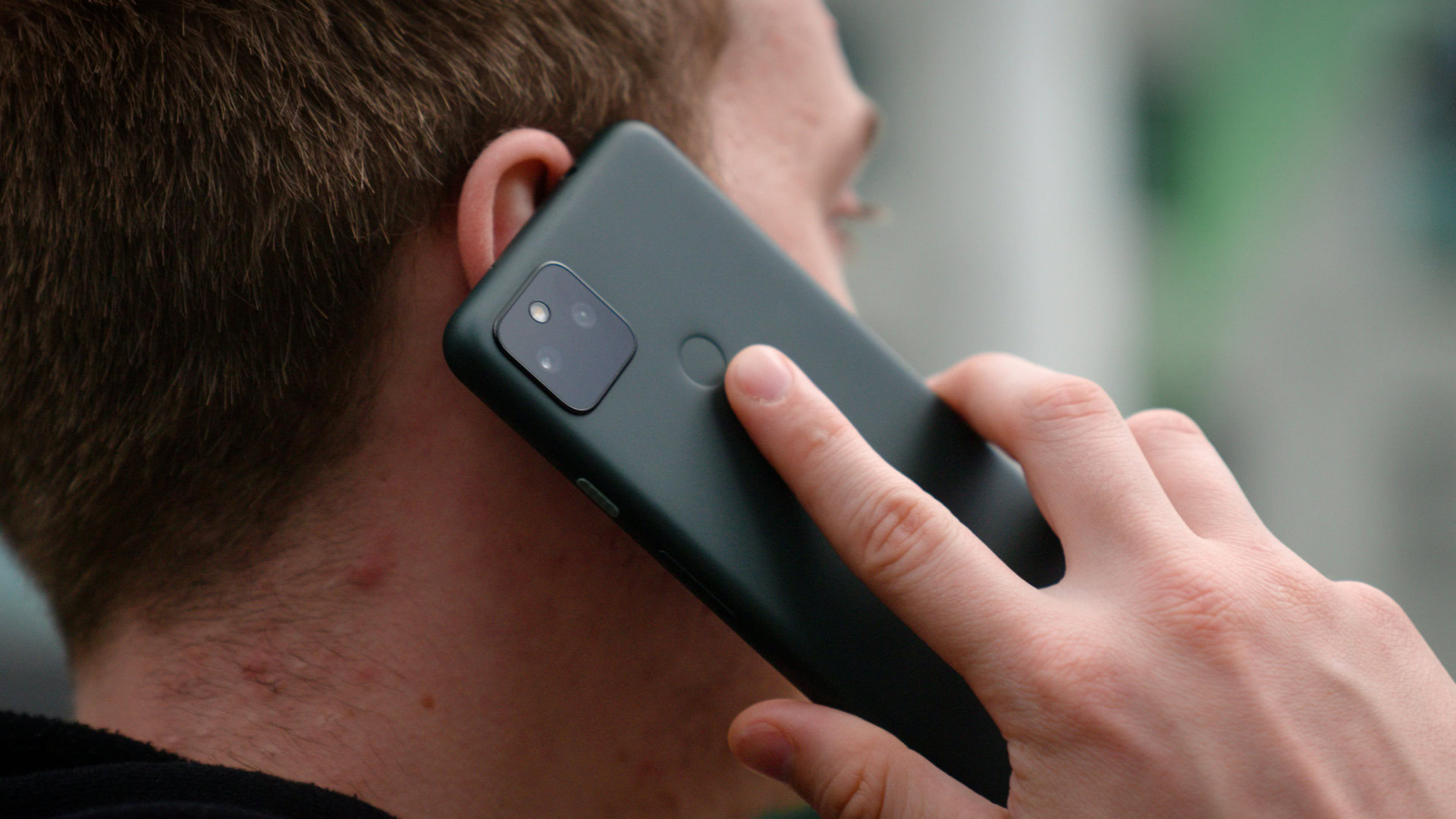
- Pixel 5a: Starts at $449
- Pixel 7a: Starts at $499
When the Pixel 5a launched in 2021, Google increased the starting price relative to its predecessor from $349 to $449. However, that generation brought a host of improvements like 5G support, a larger battery, and IP67 protection. In many ways, the Pixel 5a was the spiritual successor to the Pixel 4a 5G rather than the base Pixel 4a. With that context in mind, the Pixel 5a’s $449 price was actually lower than the Pixel 4a 5G’s $499 tag.
With the release of the Pixel 7a this year, Google has returned to that $499 price point. But with so many upgrades in tow, we believe that the 11% upcharge is justified. It’s still rather affordable in the context of other mid-range smartphones. But if you’re still not looking to spend that much, the last-gen Pixel 6a will stay on shelves for just $349.
Google Pixel 7a vs Pixel 5a: Should you upgrade?
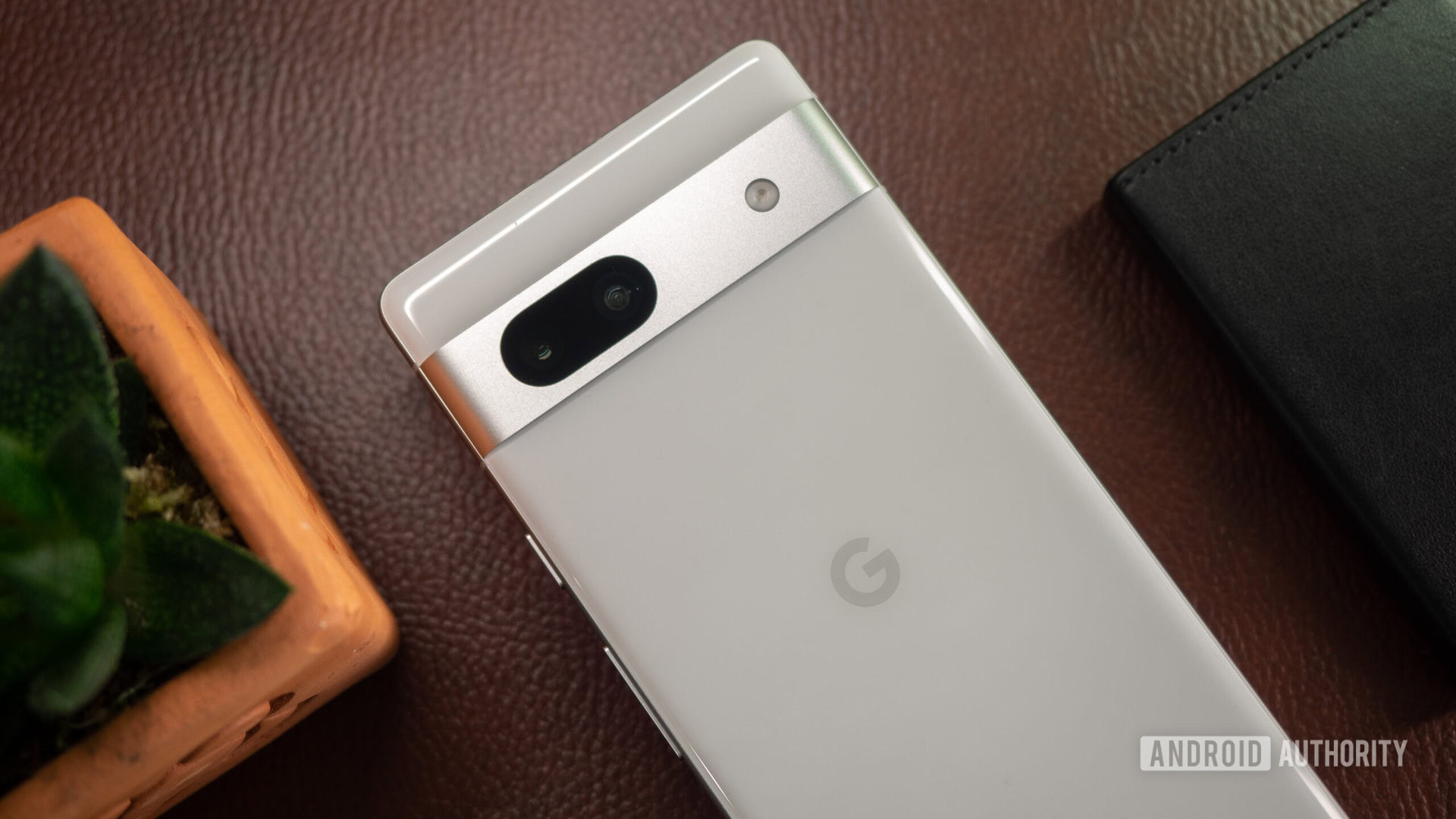
Google opted to discontinue the Pixel 5a a year after its launch, so you won’t find one on sale anymore. But what if you picked one up earlier in its life? The Pixel 7a offers massive improvements in just about every area, from its 90Hz display to a more capable camera setup. However, that does come at a $50 higher starting price.
As a price-conscious shopper, I’d also consider the last-gen Pixel 6a. Rather than discontinuing it entirely, Google has dropped the price to a rather compelling $349. You get a lot of improvements over the Pixel 5a, albeit with some minor omissions like the 90Hz refresh rate from the latest A-series phone.
If software support matters to you, the Pixel 5a will only get updates until August 2024. Meanwhile, Google’s five-year update policy means that the Pixel 7a will be supported well into the future.
Would you upgrade from the Pixel 5a to the Pixel 7a?
Ultimately, you’ll have to decide whether the Pixel 7a’s new features justify the price of admission. From looking at the spec sheet alone, it looks like one of the biggest year-over-year upgrades the series has ever seen. But if you’re currently using the Pixel 5a and don’t feel the urge to get a new phone, you can always wait for the final software update and re-evaluate next year. Will you make the switch? Let us know in the poll above.

Versatile cameras
Three years of updates
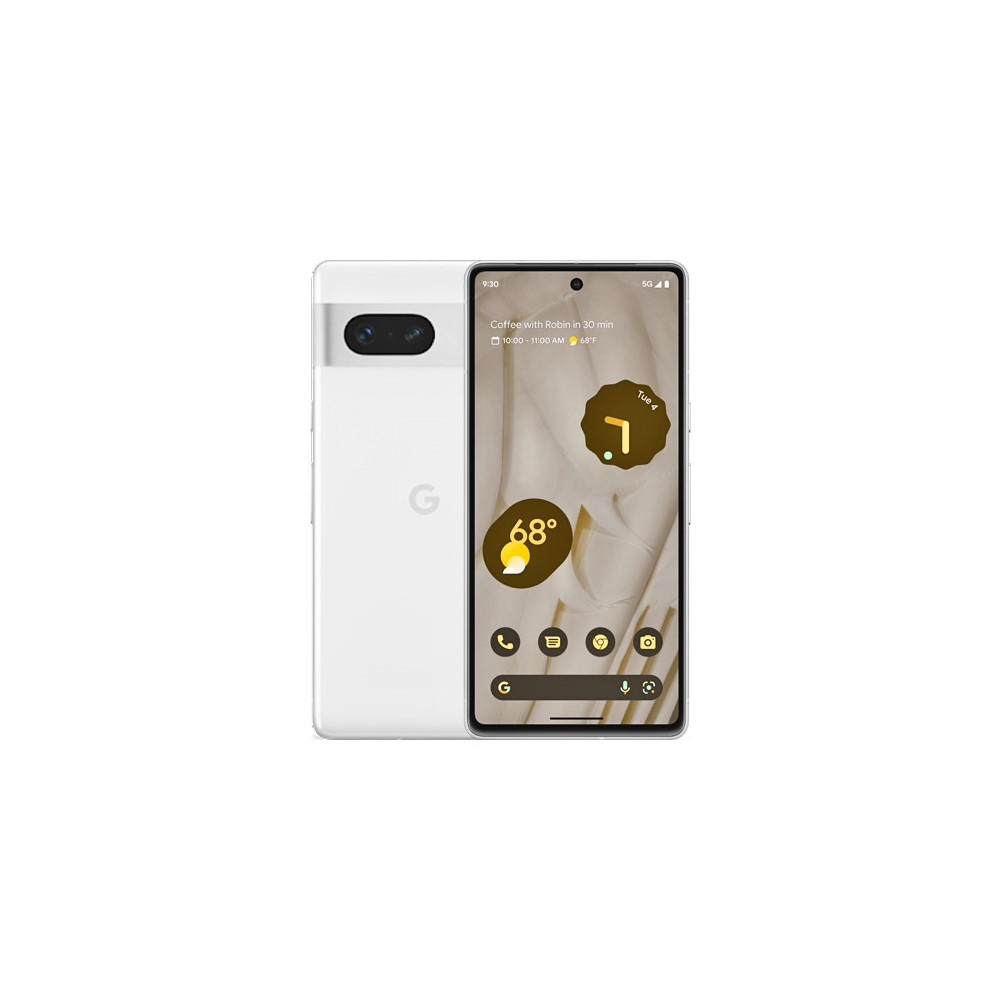
Solid performance and plenty of RAM
Improved 90Hz display
FAQs
No, the Pixel 7a has taken a step back in battery life compared to the Pixel 5a. However, it should last the average user most days of use.
If you’re upgrading from an older A-series Google smartphone like the Pixel 5a, the Pixel 7a is worth upgrading to. It offers a range of hardware improvements along with much longer software support.